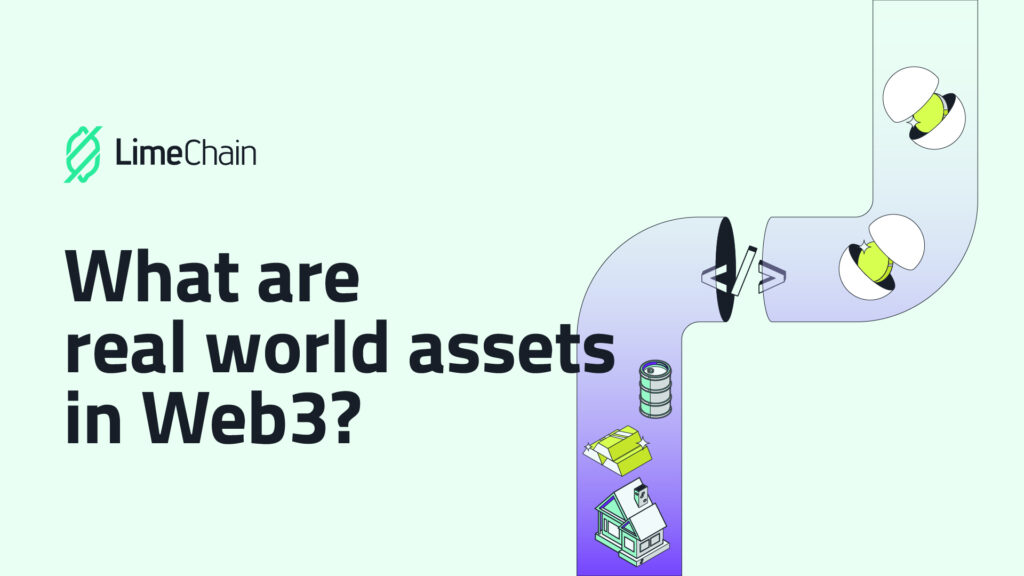

Real world assets or RWAs in Web3 are any fungible or non-fungible tokens designed to represent traditional assets on a blockchain. RWAs are the result of the latest effort to bridge traditional and decentralized finance and are already showing a lot of promise. In this article we’ll take a closer look at what makes RWAs such an exciting prospect in DeFi, as well as identify some of the main challenges they still need to overcome.
What are real world assets?
Real world assets are a way for the DeFi industry to tap into the enormous sector of traditional finance and create more value for Web3 users. At the same time, they can bring a Web3 twist and unique benefits to the often stagnant TradFi.
Through the power of tokenization, we have the ability to create on-chain representations of any real world assets, in the form of tokens. On these pages we’ve already discussed real estate tokenization, which is an example of this trend. Just one example, mind you, as any traditional asset could be the underlying asset of a tokenized RWA. Securities, commodities, real estate and even alternative investment classes like fine art, jewelry and wine can receive their own RWA representation on the blockchain.
In other words, we can describe tokenized real world assets as blockchain-powered derivatives. RWAs can be fungible or non-fungible tokens depending on the particular use case, as well as the underlying asset.
Advantages of tokenized real world assets
The advent of derivatives in traditional finance played a major role in growing the financial markets by making them more accessible and dynamic, and creating more investment opportunities. Tokenized real world assets have the potential to impact the DeFi sector in a similar way. Interest in decentralized finance has been on the downtrend lately, in the wake of the high-profile collapses of Luna and FTX, as well as a notable decrease in DeFi yields. The rapid development of RWAs increases DeFi’a ability to tap into the enormous TradFi industry and introduces new yield-producing opportunities for the Web3 ecosystem.
At the same time, the traditional financial sector also stands to benefit from a wide adoption of RWAs, as these instruments provide access to Web3 technologies and infrastructure. With that come increased efficiency, round-the-clock markets, reduced reliance on intermediaries and centralized authorities. On top of that, tokenized real world assets enable unique investment opportunities such as fractional investments, which can bring more liquidity to historically illiquid markets like real estate and art.
Challenges
Despite their potential, tokenized real world assets also face certain challenges that need to be addressed for the sector to flourish. Regulatory compliance is one of those challenges. RWAs are financial instruments, so they must comply with the financial rules and regulations in a given jurisdiction. In that respect, the lack of a unified approach to how regulators around the world see crypto assets is still a major issue for the Web3 industry.
And then there’s the matter of scalability. More specifically, if the Web3 industry wants to be able to welcome the scores of investors that could be potentially joining in from TradFi, it needs to dramatically increase its transaction-processing capacity. Fortunately, a number of promising solutions to that problem are already being actively worked on, with Layer 2 technologies having emerged as a clear frontrunner.
A lot of potential
While there’s still a lot of work to be done, real world assets are already gaining momentum, becoming one of the most exciting developments in the DeFi space. And it’s not hard to see why that’s the case. Tokenized RWAs are naturally positioned to be a bridge between DeFi and the already established markets. And if they succeed in fulfilling that role, the potential they could unlock would be practically limitless.